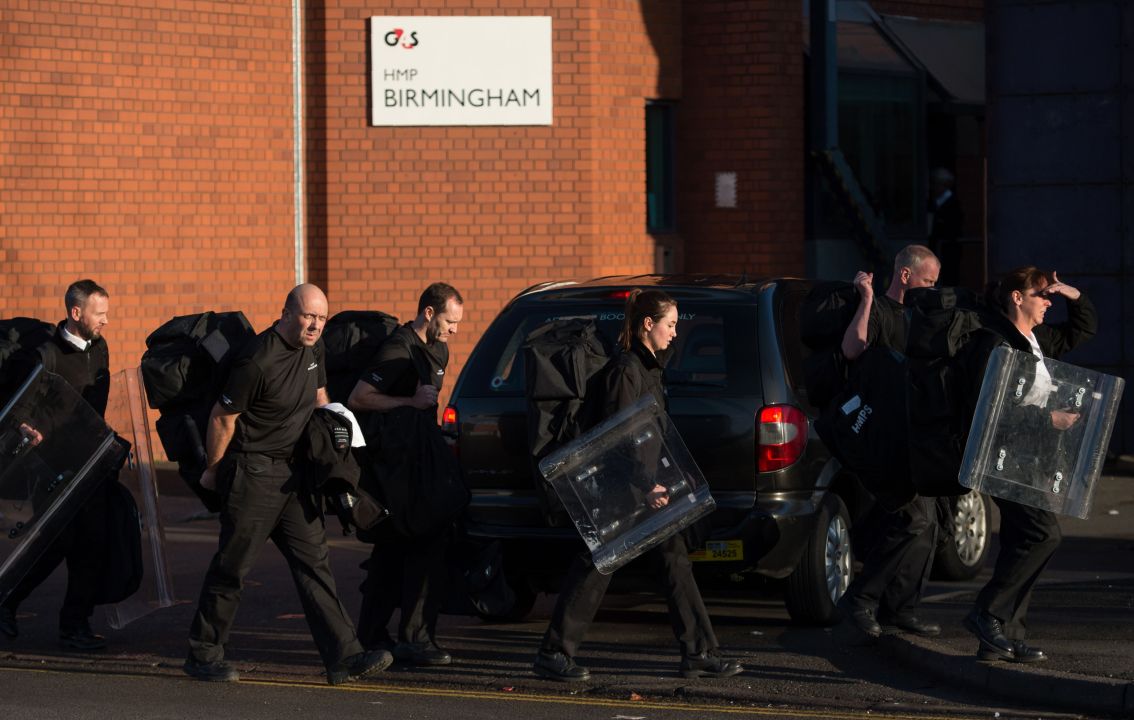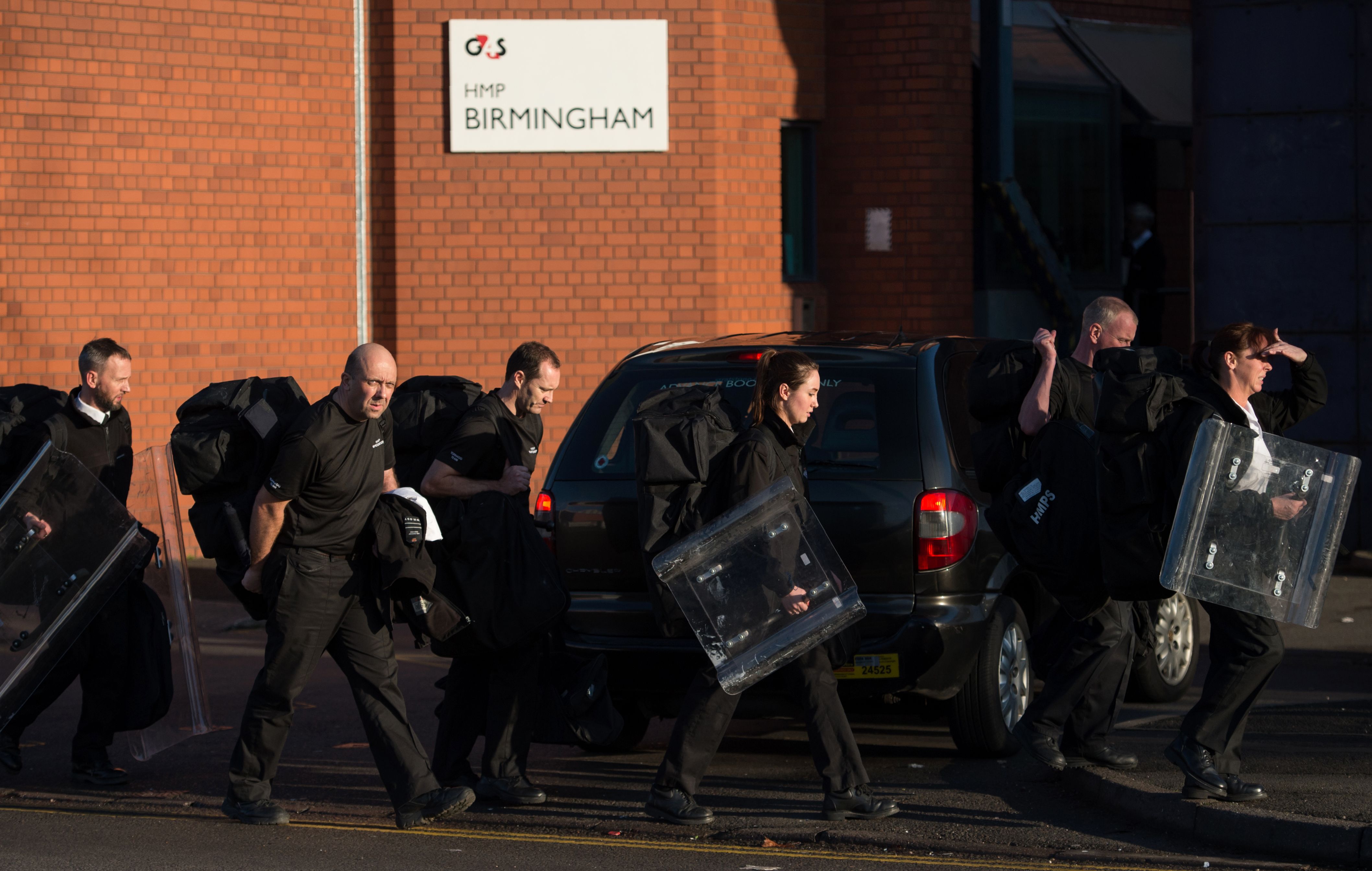Scared about coronavirus as you go about your everyday life? Spare a thought for those living and working inside our battered prison system. In Italy yesterday the anxiety that underpins all incarceration suddenly exploded into violence. Rioting left six prisoners dead, staff were taken hostage, dozens escaped and one prison in Poggioreale near Naples was ‘completely destroyed’.
The ferocious backlash was in response to tough new measures introduced across the country to try to slow the relentless progress of Covid-19. These included a ban on the all-important prisoner family visits, which are seen by experts as dramatically increasing the risk of contagion in places almost wholly unsuited to withstand its effects.
Italy has a significantly lower prison population than the UK but it shares some worrying characteristics including overcrowded, decrepit jails and poor access to sanitation. The reaction of Italian prisoners could quite easily be replicated here, with or without restrictions on visits. On some current projections of how the virus will develop in the UK, we’ve got about two weeks to get prepared.
On some current projections of how the virus will develop in the UK, we’ve got about two weeks to get prepared
Department of Health guidance on the management of communicable diseases is clear about the dangers of flu-like illnesses infecting our prisons. It states that ‘large numbers of individuals live in close proximity in relatively crowded conditions, often with high degrees of social mixing during activities’. It goes on to list the high turnover of people, due in part to constant admission and discharge, as also being an infection risk. Moreover, British prisons suffer from limited availability of secure healthcare capacity along with a ‘higher prevalence’ of respiratory illness and immune-compromised people compared with the general population.
Paradoxically, while ‘social distancing’ may in fact be easy, even in overcrowded prisons, extended ‘bang up’ might actually fuel a violent reaction. Prisoners are already confined to their cells in local prisons (where the threat of transmission is probably greatest) for up to 22 hours a day. Vital time out of cells will inevitably be further eroded if prison staff heed government advice and self-isolate. We are approaching a position where the government will tell people with even mild respiratory symptoms to stay at home for seven days. Prisons are already denuded of experienced staff. If the people with the keys start dropping like flies, we will be in big trouble very quickly.
In the grim calculus of prioritising response, it is unlikely that prisons will be at the top of the list. But what is the price of complacency? See the enormous distraction to Italian police and medical services at a time of maximum need, dealing with the aftermath of multiple riots and protesting families.
We must hope that HM Prison and Probation Service has been hard at work these last weeks, devising and testing contingency plans, modelling scenarios with partner agencies, training staff and paying attention to the events in Italy which continue to rumble on. There needs to be a co-ordinated central response to the problem, which should be possible because the prison service has ‘command mode’ national arrangements. Have these been activated?
The threat of large-scale infection of a literally captive and already restive population, the limited means of managing quarantine measures safely, the scenario of losing a substantial portion of frontline staff to infection should all be concentrating minds. The prison service has the capability to move resources and redesignate prisons (including bringing any in warm-storage back online) relatively quickly. It might be time to clear accommodation as an ‘isolation prison’ for suspected or confirmed cases of Covid-19 before this becomes unviable.
Good, timely communication will also be essential. Controlling anxiety is crucial – a well-informed prison population is less likely to panic and panic is less likely to morph into a more serious reaction.
There are very good reasons for restricting visits (if it comes to it, and it should) as a way to protect prisoners’ partners and children from becoming infected as well as protecting prisoners themselves. Much will depend on how these messages are transmitted and received. There will also be a need to pay extra attention to some of the more malign actors in our prison system who would undoubtedly exploit possible chaos for their own ends.
The science, not the politics, should also guide any decisions about even more drastic actions, including the temporary release of prisoners to ease the pressure. Such a move would make the remaining prison population more manageable and guarantee the secure custody of high risk, high harm offenders including over 200 terrorists. This is no time for posturing.
The spontaneous explosion of violence across 27 of Italy’s prisons in just one day shows how easy it is to mishandle a very complex and fluid threat. We can see the consequences of the official mishandling of fear within a group of people who have no means of protecting themselves.
The leader of Italy’s prison police union has said as much: ‘The administration is completely absent. They have left the penitentiary police in jeopardy.’ This is a clear warning to those running our own overcrowded, violent and dirty prisons: get ready. Robert Buckland and his ministers should clear their desks and adopt the mantra ‘trust but verify’. Those of us with experience of our prison service’s response to major threats can be forgiven for not being overcome with confidence.








Comments